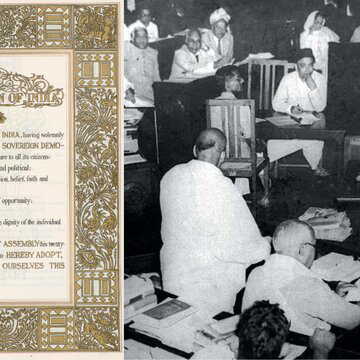India's new labour codes have brought much awaited clarity for work-from-home employees. Until now, their questions of overtime, benefits, and job security were mostly unanswered; now, the protections are clearer under the revamped rules.
Work-from-home became widely accepted after the pandemic; many companies never returned to full office operations because of lower costs and wider talent access. But this shift also created doubts among remote staff about their rights. The new codes address several of these concerns.
Also Read | NSG to mark 17 years of 26/11 with ‘Neverever’ tribute event in Mumbai
WFH is allowed only upon mutual agreement.
The new labour codes verify that working from home in the service industries is allowed as long as there is mutual agreement from both the employer and employee. The rules also provide that women on maternity leave can request WFH, granting them greater flexibility without fear of jeopardizing their jobs.
Overtime must be paid at double wages
One of the most far-reaching changes involves overtime pay. Those who work longer than regular hours should be paid twice their normal wage rates. Overtime must be voluntarily assumed, not imposed. The previous limit of 75 hours a quarter has been eliminated. States will now set their own limits. This helps workers seeking extra earnings, though experts say that states should ensure long shifts don't become routine.
Free annual health check-ups for employees above 40
Employers shall now pay for free annual medical checkups of workers 40 years old or older. The move encourages preventive care, with many remote workers facing long screen hours and limited physical activity.
ESIC coverage expanded nationally
The new codes also expand the scope of ESIC benefits. Coverage is no longer restricted to notified areas.
It may now apply to plantations, small units, and hazardous workplaces that meet the required thresholds. This ensures more workers, including remote employees living in non-metro regions, can access social security benefits.
Also Read | Delhi car blast: NIA arrests Soyab, expands probe into explosive conspiracy
Commuting accidents recognised as work-related
Accidents while traveling between home and workplace will be treated as employment-related for hybrid employees. This makes them entitled to compensation and bridges a major gap left by previous legislation.
The new labour codes acknowledge the changing patterns of work in India: for instance, clear rules on overtime, health checks, benefits, and safety for remote staff that was previously been overlooked.
Companies will have to revise their HR policies, while workers should monitor notifications from their respective states regarding overtime limits and other information.










